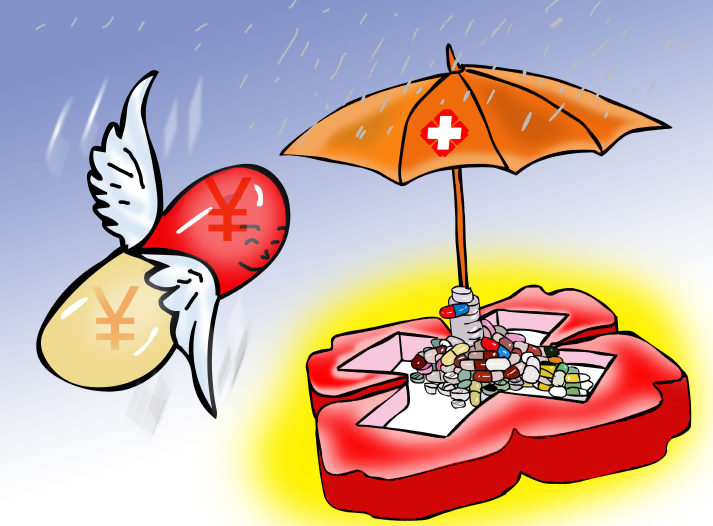| China |
| What will medical insurance coverage of costly orphan drugs bring? | |
|
|
 (LI SHIGONG)
Orphan drugs usually are defined as drugs that are developed by the pharmaceutical industry not for economic reasons, but respond to public health need. These medicinal products are intended for the diagnosis, prevention or treatment of very serious and rare diseases or disorders. As a latecomer in their development, China largely relies on foreign pharmaceutical companies to treat its patients. Late November saw China's National Healthcare Security Administration (NHSA) formally announce the renewed catalog of medicines covered by the national medical insurance system. Seventy-four medicines have been added to the list, with seven of them orphan drugs. The new catalog is to become effective on January 1, 2022. Previously, a lot of patients had to abandon treatment due to the sky-high prices of orphan drugs, so when the news was released, they found a new source of courage to continue their fight for good health. Li Ji (Hunan Daily): Of the seven newly added orphan drugs, nusinersen sodium injection (NSI) is particularly well-known in China because of a 2020 debate regarding its eye-watering price tag. It's said that a shot of NSI can set patients in China back a whopping 700,000 yuan ($110,180), whereas in some other countries, it's as little as 280 yuan (about $44). It's extremely exciting news for patients that such an expensive medicine has been added to the catalog. There are many ways for orphan drugs to get listed. An important approach is to accelerate the approval procedures for these drugs so that they can hit the market as quickly as possible. Also, more incentives should be given to their development to increase market supply. Moreover, when competitors have cropped up, monopoly pharmacies may have to cut prices to gain higher sales during medical insurance negotiations. This will in turn add more expensive medicinal products to the collection covered by medical insurance. This year's new additions will make for a solid start. More effective drug options will encourage patients tortured by rare diseases and make them know that they, too, now have the chance to enjoy a better quality of life. Gong Tao (Securities Daily): Today, innovative drugs can receive national medical insurance coverage at a far faster pace than before. These latest moves are actually sending a positive signal to pharmacies nationwide. In the past, because these drugs were not featured on the medicinal list, patients had to pay for them out of their own pocket. Yet the vast majority of patients found themselves financially unable to purchase them and, subsequently, pharmacy sales were low. Now, with these orphan drugs soon being sold at much lower prices, many more patients can actually afford them. In this sense, pharmacy profits will not sharply decline, but may even grow—thanks to higher sales. That evolution will effectively ensure pharmacies have sufficient capital to conduct research on and development of new medications. Editorial (The Beijing News): For a long time, people were pessimistic about the possibility of orphan drugs sold at stratospheric prices to be added to the catalog of medicines covered by the national medical insurance. The cost of research on and development of such drugs are exceptionally high. More importantly, orphan drugs usually hold a monopoly status in the medicinal market. Pharmacies never worry about their sales, so they seldom cede ground in negotiations for the catalog covered by insurance. However, the fact that orphan drugs have been added to the catalog has now broken the cycle. The key reason for this turnaround is the appearance of a new market contender. Given China's huge population, once a medicine falls under medical insurance coverage, sales will naturally surge. It's because of this reality that NHSA negotiators garnered the confidence to bargain with pharmacy negotiators, and demand that imported medicines no longer be sold in China at higher prices than in its surrounding international market. The renewed catalog is a victory not only for patients, but, more importantly, for a fresh and successful negotiation model that needs to be learned from and expanded on. Copyedited by Elsbeth van Paridon Comments to dingying@bjreview.com |
|
||||||||||||||||||||||||||||
|